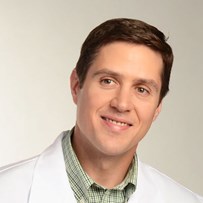
BY: DR. RYAN SMART
Rotator cuff tears are extremely common. Talk to just about any neighbor, friend, or family member and you will find that everyone knows someone who has dealt with a rotator cuff tear or had surgery for it. The incidence of full thickness rotator cuff tears increase as we age.
The rotator cuff is a series of 4 tendons that attach to the ball part of your shoulder. The muscles of the rotator cuff originate on your shoulder blade. A healthy rotator cuff is essential for a healthy shoulder. When there is a tear in the rotator cuff you can have tremendous pain with the simplest of movements such as reaching for a cup of coffee, putting dishes away, reaching behind your back, etc. Typically people will experience an ache in the upper arm which will sometimes radiate to the elbow. The pain can be sharp and stabbing particularly with certain movements. Often the pain will be worse at night and can significantly disrupt sleep.
In my practice I do a lot of shoulder arthroscopies and arthroscopic rotator cuff repairs and one of the many things I have learned is that it takes a long time to fully recover from a rotator cuff repair. I define a full recovery as getting to the point where you can use your shoulder in
everyday life and activities without even thinking about it. It is painless, strong, and free of any stiffness. This usually takes 3-6 months minimum and sometimes longer depending on the size of the tear. Recent literature suggests that patients will continue to improve for up to 2 years!
A well done rotator cuff repair is a great operation. It will restore your quality of life, rid you of pain, and allow you to do the things that are important to you in life. Just understand that it takes time to recover, it doesn’t happen overnight. When you understand this your expectations will align with reality preparing you for a great recovery. This will enable you to get through the highs and lows of the lengthy recovery and the at times grueling post-operative physical therapy knowing there is a light at the end of the tunnel.
